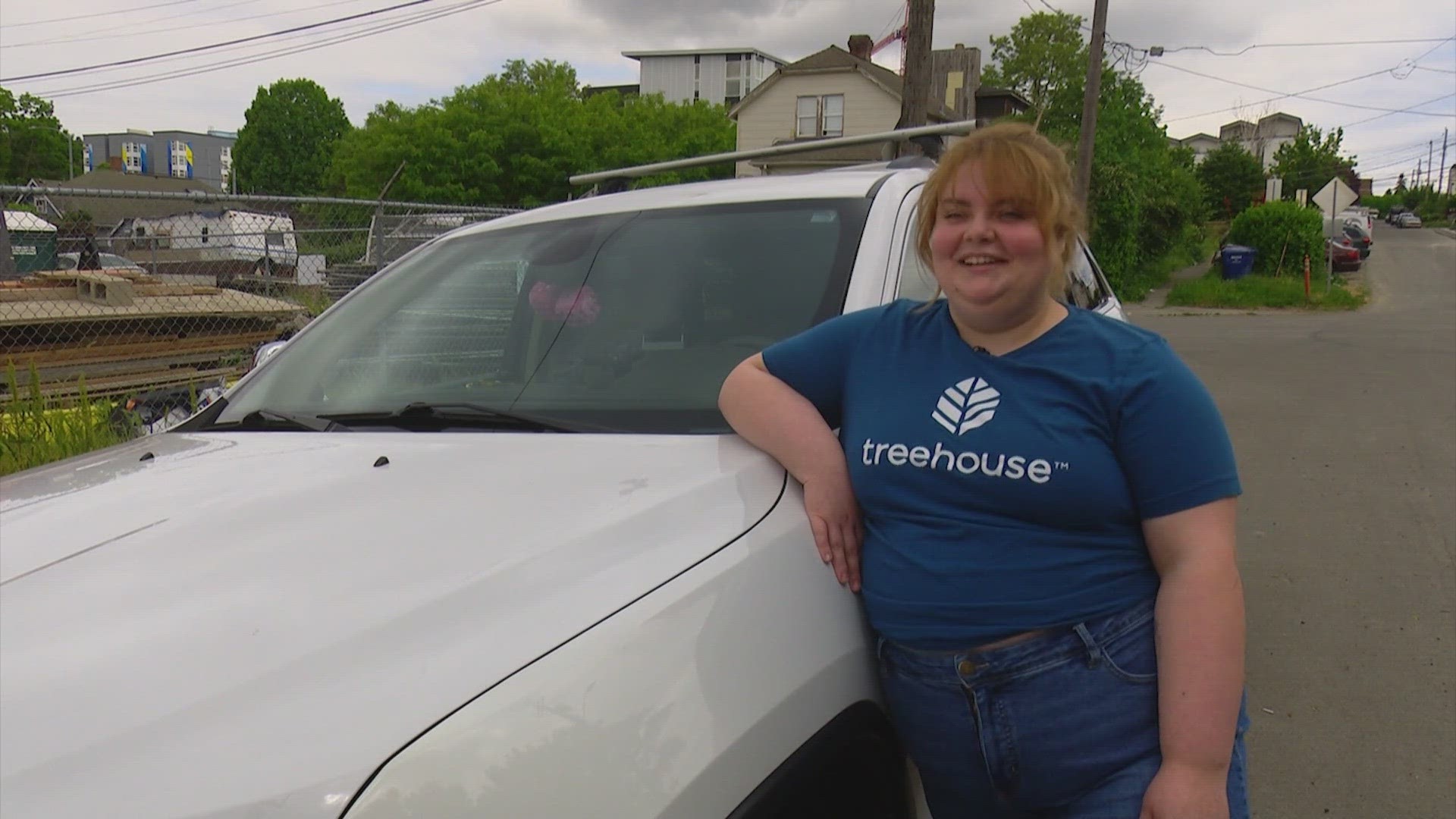SEATTLE — There will soon be more resources available for teens in foster care to get behind the wheel. Starting on July 1, a new state law will expand a non-profit driver's assistance program.
Ten years ago, Katie Buxton was able to take a driver’s education course with the help of the non-profit Treehouse. Buxton was in foster care from age 14 until she aged out at age 21.
“It was a lifesaver, honestly,” said Katie Buxton of being able to get her license.
Buxton got her license early at the age of 15 because she needed to work. The driver's course was a big help to her.
Data from Treehouse shows only 11% of teens in foster care in Washington get a driver's license by 18. That is compared to 60% of their peers.
“That meant increased access to opportunities to take hours, take shifts, and more increased opportunities for the types of jobs that I could get,” said Buxton.
Later her car served as a temporary shelter for her when she spent time without a home and allowed her to provide for her younger siblings who she took custody of when she was 18.
But even though she got her driver’s education course paid for, she struggled with other costs.
“I had an older car; it was all I could afford and so, the emissions testing for it was really expensive,” said Buxton. “I was having to choose between paying for like my car insurance or paying for food.”
But now, due to a law that passed this year, the Driver’s Assistance Program at Treehouse covers more needs. In addition to driver’s education, licensing fees, and liability insurance, the program can now pay for comprehensive car insurance, Triple-A memberships, car tabs, and more.
“By being able to provide this money flexibly and paying for the things that folks actually need, we think it's going to make a big difference in how many people access the program,” said Fred Kingston, the Director of Policy for Treehouse.
He said the law gave just over $1 million to the program for the next two years. This is not an increase in funding, as they actually had leftover money in the last budgeting period. But what this does, is allows them to use the money on more things that can help lift the burdens off of foster teens and foster families.
Treehouse says the program has helped 1,500 kids since it officially launched in 2018. Buxton had received assistance outside of the official program, as it had not been launched yet.
“Even with like the limited capacity that the program offered me back when I was 15, that dramatically changed the way that I thought about myself, my self-esteem,” said Buxton.
Buxton hopes more kids will take advantage of this expanded program, so they can have access to more opportunities and a better future.
“It's really cool to have watched this program grow and see how many young people it's helped so far,” said Buxton.

